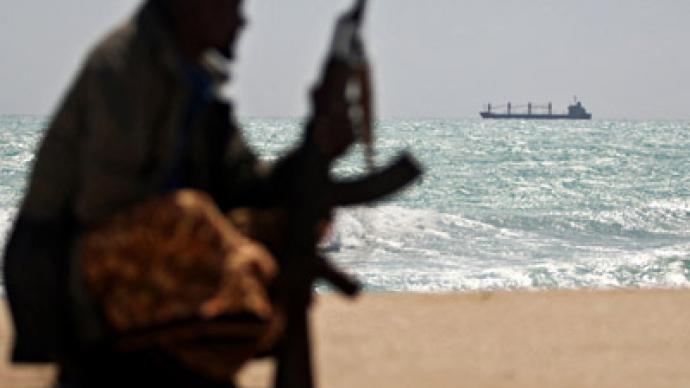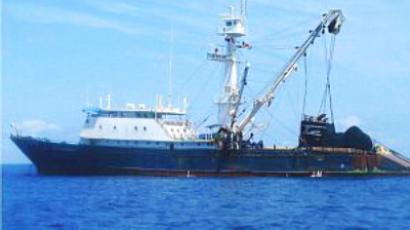Dad’s navy: Retired sea dogs to protect shipping from Somali pirates

The UK's first private navy in almost 200 years has been set up by a group of pioneering businessmen, former marines and retired captains and soldiers to defend shipping off the coast of east Africa from the threat of pirates.
They are frustrated at the inability of the Royal Navy, NATO, the European Union Naval Task Force and other navies to guarantee security for shipping in an area of ocean the size of North America. “They can’t do the job because they haven’t got the budget and deploying a billion-pound warship against six guys [pirates] with $500 of kit is not a very good use of the asset,” Anthony Sharp, chief executive of Typhon, the company behind the venture, told the Times. Typhon is chaired by Simon Murray a millionaire business man with a colorful past including a spell in the French Foreign Legion as a teenager and walking unsupported to the South Pole aged 63. Other Typhon directors include Admiral Henry Ulrich, former commander of US Naval Force’s Europe, General Sir Jack Deverell, former commander in chief Allied Forces Northern Europe and Lord Dannatt Britain’s former chief of the general staff. The navy will include a 10,000 ton mother ship and high speed armored patrol boats and will be led by a former Royal Navy commodore and 240 former marines and other sailors. The marines will be armed with close quarter weapons such as the M4 carbine and sniper rifles with a range of 2 km. It will escort its first convoy of oil tankers, bulk carriers and the occasional yacht along the east coast of Africa in late March or early April. They will aim to deter pirates rather than engage in firefights. They will sail under a British flag, which would give them the legal right to carry their weapons into harbor rather than keep them on platforms in international waters. The navy will be funded by shipping firms in much the same way as the cargo ships sailing under Russian, Chinese and Indian flags hire private convoys. The Russian navy as well the navies of China, India and other countries also patrol the coast off east Africa. They are part a multinational coalition task force, called Combined Task Force 150, which took on the role of fighting piracy off of the coast of Somalia by establishing a Maritime Security Patrol Area (MSPA) within the Gulf of Aden. But despite such a large international presence in the area, piracy still remains a problem although the pirates are now on the back foot.According to the International Maritime Bureau, pirate attacks had by October 2012 dropped to a six-year low, with only 1 ship attacked in the third quarter compared to 36 during the same period in 2011. As of 31st December 2012, the pirates were holding four large ships and an estimated 114 hostages.














